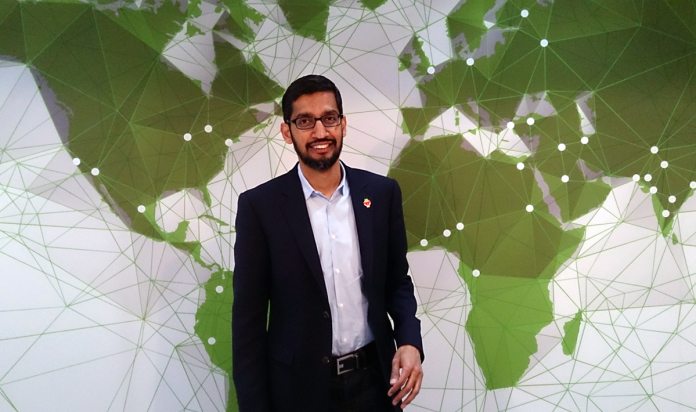Alphabet CEO, Sundar Pichai, testified at the U.S. Department of Justice's antitrust trial against Google on October 30, 2023. In his testimony, Pichai admitted that Google does indeed see value in default settings for its services. He countered the government's assertions that these settings dictate user behavior by drawing attention to the sizable estimated annual payment of $18 billion to $20 billion made by Google to Apple. This fee is paid to ensure Google's status as the default search engine in Apple's Safari web browser.
Pichai suggested that driving competition, rather than a monopolistic grip on the Search realm, is at the heart of this transaction. He reasoned that the cost-effectiveness of contending with a potential Apple-powered rival search engine or another competitor weighed in favor of retaining Google's default status on iPhones.
The Power of Default Settings and Upholding Competition: A Balancing Act
The DoJ is attempting to establish that Google's overwhelming 90 percent market share stems from illicit conduct – exclusive agreements that smother competition along with anti-competitive technical stumbling blocks. Nonetheless, Google's standpoint is that it simply offers superior search products.
Google has been defending its position against allegations of monopolistic and anti-competitive behavior. The U.S. Department of Justice (DoJ) initiated a civil antitrust lawsuit against Google in October 2020, accusing the tech giant of monopolizing search and search advertising.
This was followed by a separate complaint from the attorneys general of 35 states, the District of Columbia, Puerto Rico, and Guam. These cases have now been merged into one. The trial is set to scrutinize Google's “exclusive dealing arrangements” with companies like Apple and Samsung and its practice of pre-installing its services on Android devices.
Discussions have repeatedly circled back to the potency of default settings in shaping user behavior, a notion borne out by marketing industry practices that push for user opt-outs rather than opt-ins. A 2005 communication from Google to Microsoft protesting against the bundling of MSN Search with Internet Explorer highlighted this sentiment, stating, “… most end users do not change defaults.”
Internal Documents Reveal Potential Search Advertising Manipulation
Several of Google's internal documents, including email discussions, were released by the Justice Department to support its case. These documents convey the extent of influence Google commands over ad auction revenue. For instance, a 2008 presentation on ad quality outlined “4 big knobs and levers” that could be utilized to manipulate ad auctions.
The internal correspondence has also revealed Google's concern over DuckDuckGo's rise as a promoter of more private search options, as well as discussions about the future of Chrome if users are allowed to set defaults, thereby undermining its function as primarily serving Google Search.
Expected to wrap up in mid-November, a win for the Department of Justice in this antitrust trial could potentially reshape Google Search based on the evidence presented in these documents.
Microsoft's Position During the Trial
One of the topics of the trial has been Microsoft's Bing. More specifically, whether Google has stifled the growth of the rival search engine or whether Microsoft's own failings have stopped Bing matching Google. In his testimonies to the court, Microsoft CEO Satya Nadella suggested the former.
Nadella unveiled that Microsoft has poured a staggering $100 billion into Bing, its proprietary search engine. Nadella candidly admitted Microsoft's unsuccessful attempts to dethrone Google from this position, even after offering Apple more favorable terms. He speculated that Apple might have used Microsoft's interest as leverage to extract higher bids from Google. This strategic alliance between Apple and Google, Nadella argued, is pivotal for gathering data, improving search services, and attracting advertisers.
However, Google countered by saying Microsoft's own failings are behind Bing's slow growth. The company's lawyers were critical of Bing, suggesting that Microsoft's failures to invest and innovate have rendered Bing unpopular. He also mentioned an instance when Firefox browsers had Bing set as the default search engine, which reportedly led many users to revert to Google Search.






